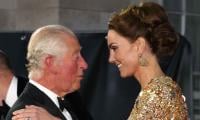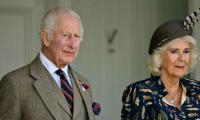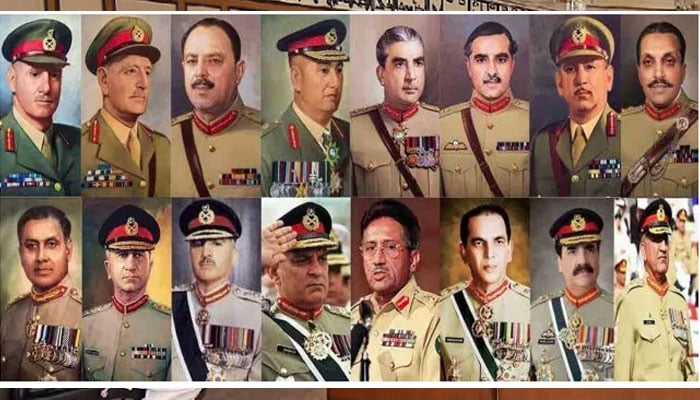Varying, yet eventful, tenures of all Pak Army chiefs
LAHORE: The 16 Army Chiefs, Pakistan has had since its inception in August 1947, have served for varying tenures - some serving for as short a period as two months, others going on to call shots for nine years, and a few holding batons of command for much longer durations lasting up to nearly 12-and-a-half years, courtesy the extensions they gave themselves as Presidents or even enjoyed extended terms granted by civilian governments, research conducted by the "Jang Group and Geo Television Network" reveals.
The tenure length was fixed for all military chiefs - Army, Navy and Air Force - in 1972 when the-then President, Zulfikar Ali Bhutto, had converted the designations of the respective Services' Commanders-in-Chief (C-in-C) into Chief of the Army Staff, Chief of the Naval Staff and Chief of the Air Staff.
Before 1972, Pakistan Army was headed by six C-in-Cs, and since then, following the re-designation, not fewer than 10 Chiefs of the Army Staff have led the military in 47 years.
Research shows that since 1947, numerous Pakistani Army Chiefs have served beyond three years.
Here follows the list of these Pakistani Army bosses who hung boots after enjoying tenures of more than three years:
The tenure of Pakistan's first native commander-in-chief, Field Marshal Gen Ayub Khan (1907-1974), had lasted from January 1951 to October 1958, or for a period of seven years, nine months and nine days. He remains the youngest of all Army bosses in over 70 years.
Ayub was appointed to this post at the age of only 43 years, eight months and three days.
Amont all other army chiefs before or after him, Ayub had the shortest military service length of 30 years, 10 months and 24 days.
He had managed to grab the highest and most powerful position after service tenure of just 22 years and 11 months on January 17, 1951 - yet another feather in his illustrious cap.
It goes without saying that had the first two Pakistan army Commanders-in-Chief, Generals Frank Messervy and Douglas Gracey completed their three-year tenures, Ayub Khan would not have been picked to lead the country's military at the age of only 43.
Another factor that played a pivotal role in Ayub's early elevation was the accidental demise of Maj Gen Muhammad Iftikhar Khan (January 10, 1907 - December 13, 1949), who was actually nominated ahead of Ayub Khan to become the first local Commander-in-Chief of the Pakistan Army.
According to the December 14, 1949 edition of a widely-subscribed Australian newspaper, the "Sydney Morning Herald", Maj Gen Iftikhar was senior to Ayub Khan, but he had perished in a Pakistan Airways Dakota plane crash near Karachi on Dec 13, 1949, before he could assume the post of Commander-in-Chief.
The prestigious Australian newspaper had revealed in 1949 that those killed along with Gen Iftikhar had included a serving Brigadier, Sher Khan, and 24 other military officers.
When Ayub was handed over the command of Pakistan Army, he was preferred over senior soldiers like Maj Gen Ishfakul Majid, Maj Gen Akbar Khan and Maj Gen N.A.M. Raza.
The tenure of General Musa Khan (1908 -1991) spans from October 27, 1958 to June 17, 1966. Musa's term had lasted around seven years and 11 months, while his military career was 31 years, six months and 16 days long.
An excellent hockey player, the Quetta-born Gen Musa's promotion had also led to suppression of a few seniors like Generals Sher Ali Khan Pataudi and Latif Khan. However, while Sher Ali Pataudi had opted to retire, Latif took back his resignation at the personal intercession of Ayub Khan. Gen Musa had risen to the rank of the Commander-in-Chief when he was 48 years and five months old.
He was then succeeded by General Yahya Khan (1917-1980), who was appointed the country's fifth Army Commander on June 18, 1966, a post he had held till December 20, 1971.
Yahya had superseded two of his senior colleagues; Generals Altaf Qadir and Bakhtiar Rana. His tenure as Army chief was five years, three months and two days long.
His military career had spanned over a period of 32 years, five months and five days. He became Chief of Army Staff when he was 49 years and seven months old.
In December 1971, East Pakistan had seceded to become Bangladesh during his tenure. Yahya had then handed over the Presidency to Zulfikar Ali Bhutto and stepped down as Army Chief in disgrace. Bhutto had stripped Yahya of all previous military decorations and placed him under house arrest for most of the 1970s.
When Bhutto was overthrown in a military coup in 1977, Yahya was released by General Zia.
Gen Tikka Khan (1915-2002) had served as Army Chief from March 3, 1972 to retiring on March 1, 1976. As army chief, he had served just two days short of four years.
Tikka was the first of all military bosses to hold the title of an Army Chief, instead of Commander-in-Chief. He was commissioned on December 22, 1940, which means his military career had spanned over a period of 35 years, two months and seven days.
(References: Indian newspaper "The Hindu" and historian Peter Wilson Prabhakar's book "Wars, proxy wars and terrorism: Post Independent India")
Gen Zia's July 1977 coup had led to the arrest of both Zulfikar Ali Bhutto and Gen Tikka Khan both.
Bhutto was executed in 1979, after which Gen Tikka Khan had emerged as one of the leaders of the Pakistan People's Party, becoming its general secretary, at a time when many of Bhutto's trusted confidants had deserted this political entity. When Tikka died on March 28, 2002, he had received a state burial.
Gen Ziaul Haq (1924--1988) was appointed Chief of Army Staff on March 1, 1976 at the age of 51 years and six months. He had served on this key position for the longest period of 12 years, 5 months and 16 days.
He was also promoted ahead of senior lieutenant generals Muhammad Shariff, Akbar Khan, Aftab Ahmed Khan, Azmat Baksh Awan, Agha Ibrahim Akram, Abdul Majeed Malik and Ghulam Jilani Khan.
Gen Zia had thus superseded seven senior lieutenant generals. The senior most at that time, Lt-Gen Shariff, was promoted as a General and made the Chairman of the Joint Chiefs of Staff Committee.
Zia's military career had spanned well over 45 years and three months. He had declared the third Martial Law in the country's history in 1977 after deposing an elected premier Zulfikar Ali Bhutto. Zia was also the sixth president of Pakistan.
According to Gen Mitha's book ‘Unlikely beginnings: a soldier's life', it was Gen Gul Hassan's lobbying at the GHQ that had saved the then Brigadier Ziaul Haq from being terminated.
Zia, who was in Jordan during 1971, was accused of disobeying the GHQ orders by commanding a Jordanian armoured division against the Palestinians - resulting in killings of thousands of people.
Gen Pervez Musharraf (born 1943) had served as Army chief for nine years, one month and 22 days.
He took over as the Chief of Army Staff on October 6, 1998 at the age of 55 years and one month. He served till November 28, 2007. By the way, Musharraf has had the longest military career spread over 45 years, seven months and nine days. In 2001, as President, he had himself extended his tenure as Army Chief.
The-then Premier, Nawaz Sharif, had preferred him over Generals Ali Quli Khan and Khalid Nawaz Khan.
Musharraf had also served as country's 10th president from June 2001 to August 2008.
Gen Ashfaq Parvez Kayani (born April 20, 1952) took over as the Chief of Army Staff on November 29, 2007 at the age of 55 years and nine months. He served till November 29, 2013.
As Army Chief, he had served for six years. He was the first four-star officer to receive a term extension from any democratic government. At the time of his promotion, Kayani had superseded Lt-Gen Khalid Kidwai, who was on an extension for one year.
(More references: Archives of numerous leading Pakistani newspapers and television channels, The Newsweek, the New York Times, the Washington Post, the Los Angeles Times and the Wall Street Journal etc)
For one reason or the other, five Pakistani Army Chiefs could not complete their three-year tenures in this powerful office.
Here follows the list in this context:
Country's first Commander-in-Chief, Gen Frank Messervy (1893-1974), had commanded Pakistan Army from August 15, 1947 to February 10, 1948 or for 175 days only to be more precise. His career as a soldier was about 35 years, seven months and one-day long.
The second Commander-in-Chief of Pakistan Army, Gen Douglas Gracey, had served as the head of the country's armed forces between February 11, 1948 and January 16, 1951, or for two years, 11 months and five days.
The Quetta-born Lt Gen Gul Hassan (1921-1999) had the shortest tenure as Commander-in-Chief, having served on this post for just two months and 11 days from December 20, 1971 until March 3, 1972.
An excellent boxer and hockey player, Gul Hassan, had superseded his senior, Lt Gen Tikka Khan. Actually, he was the last Commander-in-Chief of the Pakistan Army as this designation was changed to Chief of Army Staff after his term had ended unceremoniously.
He was deposed by the then President Zulfikar Ali Bhutto after the Hamoodur Rahman Commission had recommended his ouster. Gul Hassan's military career had spanned over a period of 30 years and nine days.
Following trial, Gen Gul Hassan was immediately retired from the Army and further relieved from any benefits traditionally given to the retired officers. After sacking Gul Hassan, Bhutto had promoted Gen Tikka Khan as full General and appointed him as Chief of the Army Staff.
Tikka's promotion to full general, as a superseded lieutenant general, remains the only example of its kind in the Pakistan Army.
(References: The December 14, 1949 edition of the Sydney Morning Herald, Christophe Jaffrelot's book "A history of Pakistan and its origins", Karl Newman's book "Pakistan under Ayub Khan, Bhutto und Ziaul Haq" and Christopher Clapham, and George Philip's book "The political dilemmas of military regimes")
Gen Asif Nawaz Janjua (1937-1993) was the 10th Army Chief from August 16, 1991 till his sudden death in office on January 8, 1993.
His term as Army chief had lasted just one year, four months and 22 days.
After the completion of three-year term of Gen Aslam Beg as Army Chief, four generals were in the race to replace him.
These generals included Lt Gen Shamim Alam Khan, Lt Gen Asif Nawaz, Lt Gen Zulfiqar Akhtar Naz and Lt Gen Hamid Gul. Shamim Alam Khan was named as chairman Joint Chiefs of Staff Committee and Asif Nawaz was thus chosen to head the Pakistan Army on June 11, 1991. He had suffered a fatal heart attack in Rawalpindi. Janjua's military career had spread over a period of 35 years, nine months and eight days.
He was designated as Chief of Army Staff on June 11, 1991 at the age of 54 years and five months.
Gen Jehangir Karamat (born February 20, 1941) was made the twelfth Chief of the Army Staff on January 12, 1996 at the age of 54 years and 10 months. He held the office till October 6, 1998. He had served on this slot for two years, eight months and 25 days. He later became Chairman of Joint Chiefs of Staff Committee in 1997. He chose quit over disagreement with civilian authorities. Karamat enjoyed a nearly 37-year-long military career. Karamat was preferred over Generals Nasir Akhtar, Muhammad Tariq and Javed Ashraf Qazi.
In 1995, along with Maj Gen Ali Kuli Khan of Military Intelligence, Gen Karamat had exposed the attempted coup against the government of the then Prime Minister Benazir Bhutto, who had later conferred him with a national award.
By the way, only three Pakistani Army Chiefs have till date relinquished charge after completion of their three-year terms as head of country's armed forces.
These include Gen Mirza Aslam Beg (born 1931), who was appointed Pakistan's ninth Army Chief after Gen Zia's accidental death on August 17, 1988. During his term, Gen Beg had fallen out with the-then Premier, Nawaz Sharif, on the issue of sending forces to Iraq during the Gulf War.
Born in Uttar Pradesh, Gen Beg was denied an extension by the-then Pakistani President, Ghulam Ishaq Khan, in 1991. Hence, on August 16, 1991, Gen Beg had to retire from his military serving, handing over the command to Gen Asif Nawaz Janjua. Gen Beg's military career had spread over a period of nearly 40 years. He became the COAS on August 17, 1988 at the age of 57 years and 15 days.
After retirement, Beg was later summoned by the Supreme Court of Pakistan in 2012 for his alleged role in the Mehran Bank scandal for bribing Opposition politicians with millions of rupees prior to the 1990 ballot exercise.
The Peshawar-born Gen Abdul Wahid Kakar (born 1937) was appointed the 11th Chief of Army Staff on January 12, 1993 and had held the office till January 12, 1996. His tenure as Army chief was exactly three years long too. Kakar's military career was spread over a period of 36 years, two months and 25 days. Four senior generals - Rehm Dil Bhatti, Mohammad Ashraf, Farrukh Khan and Arif Bangash - were superseded with Gen Kakar's appointment. Among these generals, the last two had opted to stay in the Army. He was the nephew of eminent politician, Sardar Abdur Rab Nishtar. He had forced President Ghulam Ishaq Khan and Premier Nawaz Sharif to tender their resignations at the height of the 1993 Constitutional crisis.
He was appointed Army Chief at the age of 55 years and nine months. (Reference: Maleeha Lodhi's book "Pakistan's encounter with democracy")
Gen Raheel Sharif (born 1956) was appointed Army Chief on November 29, 2013 at the age of 57 years, five months and 13 days, and thus remains the oldest-ever general to take charge of the national armed forces. His career as a soldier had lasted 40 years and almost two months.
Gen Raheel was elevated over two more senior generals; Haroon Aslam and Rashad Mahmood. He went home honourably after completing his stipulated term in office.
The incumbent Army Chief, Gen Qamar Javed Bajwa, whose tenure was extended Tuesday by Premier Imran Khan through a new notification, had assumed charge as the Sixteenth Chief of Army Staff at the age of 56 years and a few days.
Gen Bajwa (born on November 1960) had thus become the fourth oldest Army Chief of the country at the time of his elevation three years ago.
The Ghakhar Mandi (Gujranwala district) born General Bajwa also shares his birth place with Pakistan's Ninth President, Muhammad Rafiq Tarar (born on November 2, 1929 and served as the head of state from January 20, 1998 to June 20, 2001).
Having turned 59 a fortnight ago on November 11, Gen Qamar Javed Bajwa was given a three-year extension in his stipulated service term by current Pakistani Prime Minister Imran Khan in August this year, after having served on this prestigious slot for around 995 days since November 29, 2016, when his outgoing predecessor Gen Raheel Sharif had formally handed over the charge to him.
Should the Supreme Court decide the three-year extension issue in his favour (today), Gen Bajwa's service length will be more than 44 years when he retires in 2022.
-
 OpenAI And ServiceNow Team Up To Embed ChatGPT In Business Workflows
OpenAI And ServiceNow Team Up To Embed ChatGPT In Business Workflows -
 Johnny Depp Prepares For His Massive Comeback After Years Of Struggle
Johnny Depp Prepares For His Massive Comeback After Years Of Struggle -
 Meghan Markle Is Ready To Put A Cork In It All By Giving Prince Harry Baby No. 3: ‘She Wants A Break’
Meghan Markle Is Ready To Put A Cork In It All By Giving Prince Harry Baby No. 3: ‘She Wants A Break’ -
 Billie Eilish Speaks Out Against Authority: 'It's Very Strange'
Billie Eilish Speaks Out Against Authority: 'It's Very Strange' -
 'Greenland Will Stay Greenland', Former Trump Adviser Hints At New Twist
'Greenland Will Stay Greenland', Former Trump Adviser Hints At New Twist -
 Brooklyn Beckham's Wedding Dance With Mom Victoria Sparks Hilarious Memes
Brooklyn Beckham's Wedding Dance With Mom Victoria Sparks Hilarious Memes -
 King Charles' Latest Photos A Statement On His Health?
King Charles' Latest Photos A Statement On His Health? -
 Tom Cruise's Biggest Dream Crushed By The President?
Tom Cruise's Biggest Dream Crushed By The President? -
 King Charles, Queen Camilla Send Message To King Of Spain After Train Crash
King Charles, Queen Camilla Send Message To King Of Spain After Train Crash -
 'We Believe Brooklyn': David Beckham Trolled After Son's Statement
'We Believe Brooklyn': David Beckham Trolled After Son's Statement -
 Microsoft CEO Says AI Must Deliver Real World Impact To Survive
Microsoft CEO Says AI Must Deliver Real World Impact To Survive -
 Stranger Knocks, Then Opens Fire On Indiana Judge And Wife
Stranger Knocks, Then Opens Fire On Indiana Judge And Wife -
 Priscilla Presley's Derogatory Remarks On Late Daughter Lisa Marie Reignite Controversy
Priscilla Presley's Derogatory Remarks On Late Daughter Lisa Marie Reignite Controversy -
 Japan Unveils Anti-ship Missile With ‘barrel-roll’ Evasion To Outsmart Defenses
Japan Unveils Anti-ship Missile With ‘barrel-roll’ Evasion To Outsmart Defenses -
 How Brooklyn Beckham 'mentor' Prince Harry Inspiring Him To Speak Against Family?
How Brooklyn Beckham 'mentor' Prince Harry Inspiring Him To Speak Against Family? -
 Zac Efron, Kenny Ortega Revisit 'High School Musical' After 2 Decades
Zac Efron, Kenny Ortega Revisit 'High School Musical' After 2 Decades




